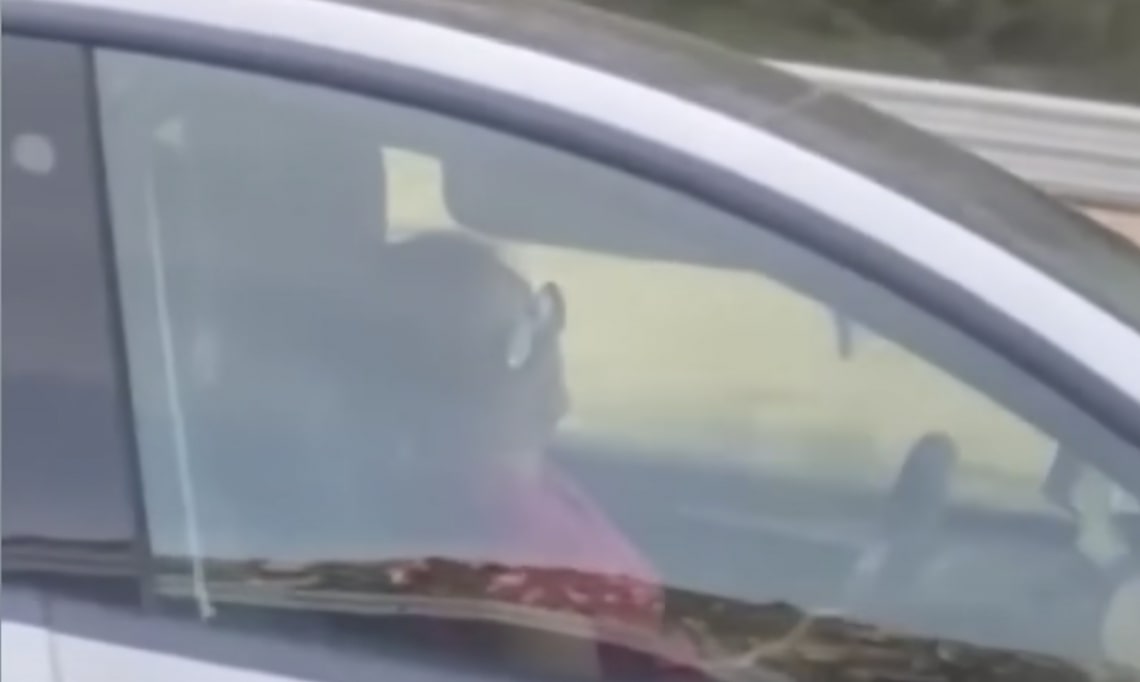
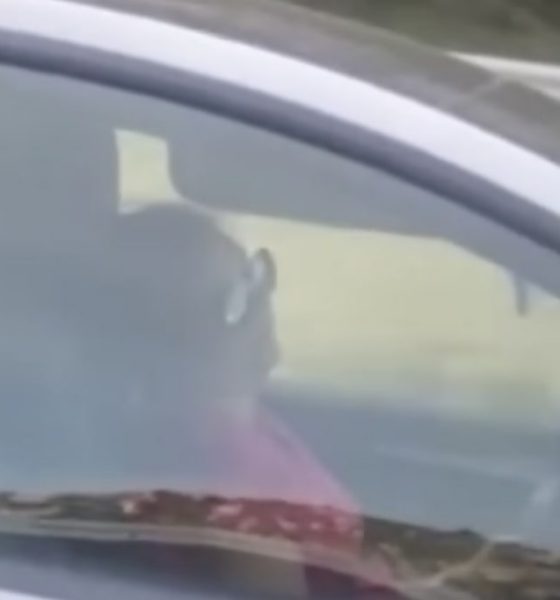
News
Tesla with sleeping driver proves there’s still misunderstanding and irresponsibility surrounding autonomy
Update: 11:06 AM EST: Paragraph 7 added to show the probability of the driver having a medical emergency. California Highway Patrol saw the vehicle and noted the driver was awake after catching up to the car.
A Tesla Model Y with a sleeping driver was recently spotted on the I-15 Freeway near Temecula, California, which proves that people and media still have a vast misunderstanding and irresponsible tone regarding the capabilities of semi-autonomous vehicles.
According to a report from KTLA 5, a woman in a Tesla Model Y was followed by another driver for more than fifteen minutes on the California interstate in an attempt to wake the woman who was taking advantage of the automaker’s semi-autonomous driving functions up.
The report and the incident prove there are still huge misunderstandings in the capabilities of semi-autonomous driving suites, including Tesla’s Full Self-Driving and Autopilot, which require users to remain vigilant and be prepared to take over the vehicle at any point.
Drivers utilize semi-autonomous vehicle functionalities irresponsibly often, and social media has proven time and time again that people take advantage of the capabilities, even though they are not fully autonomous.
It is no secret that people and companies have utilized whatever they can to alleviate themselves of the responsibility of paying attention while the car operates some tasks on its own. With the introduction of advanced driver assistance systems (ADAS) over the past several years, drivers have taken advantage of the functions to instead play on their phones, read books, eat food, or even catch up on sleep.
Tesla’s camera-based driver monitoring system goes through the cellphone test
However, the risks that come with this behavior are potentially catastrophic. For one, those who use these functions irresponsibly put themselves and every other driver on the road at risk because if the vehicle needs assistance or encounters a situation where it would not react safely, the driver is responsible for taking over. Additionally, if an accident occurs, it can be framed as Tesla’s, or any other manufacturer’s fault, depending on the vehicle used, and instances like this can set the future of semi-autonomous and autonomous driving back years due to skepticism.
There is the possibility that the driver had some type of medical emergency or accidentally fell asleep, in which the Tesla’s functionalities kept the operator and others safe. Police stated the driver was caught up to two minutes after receiving calls about the driver, and the driver was attentive at this time.
However, the media’s portrayal of the situation also proves that many are widely uninformed regarding the capabilities of Teslas. While Tesla’s Full Self-Driving suite has caused controversy over its name, the automaker continues to remind those who use it to remain vigilant, as the cars cannot truly drive themselves.
In Tesla’s FAQ section of the Autopilot and Full Self-Driving page, the company answers the question, “Do I still need to pay attention while using Autopilot?:”
“Yes. Autopilot is a hands-on driver assistance system that is intended to be used only with a fully attentive driver. It does not turn a Tesla into a self-driving car nor does it make a car autonomous.
Before enabling Autopilot, you must agree to “keep your hands on the steering wheel at all times” and to always “maintain control and responsibility for your car.” Once engaged, Autopilot will also deliver an escalating series of visual and audio warnings, reminding you to place your hands on the wheel if insufficient torque is applied. If you repeatedly ignore these warnings, you will be locked out from using Autopilot during that trip.
You can override any of Autopilot’s features at any time by steering, applying the brakes, or using the cruise control stalk to deactivate.”
Media labeling the vehicle as “a self-driving Tesla” is a disservice to people and the company. Teslas do not drive themselves, as the vehicles are defined as Level 2, according to the Society of Automotive Engineers Levels of Driving Automation. Level 2 systems reiterate that the driver is still responsible for driving the car when these systems are activated. “You must constantly supervise these support features,” the SAE says. Level 3 to Level 5 systems maintain that the operator is not driving the car, but Level 5 systems are the only ones that are explicitly labeled as “self-driving.”
“This feature can drive the vehicle under all conditions,” the SAE table states.
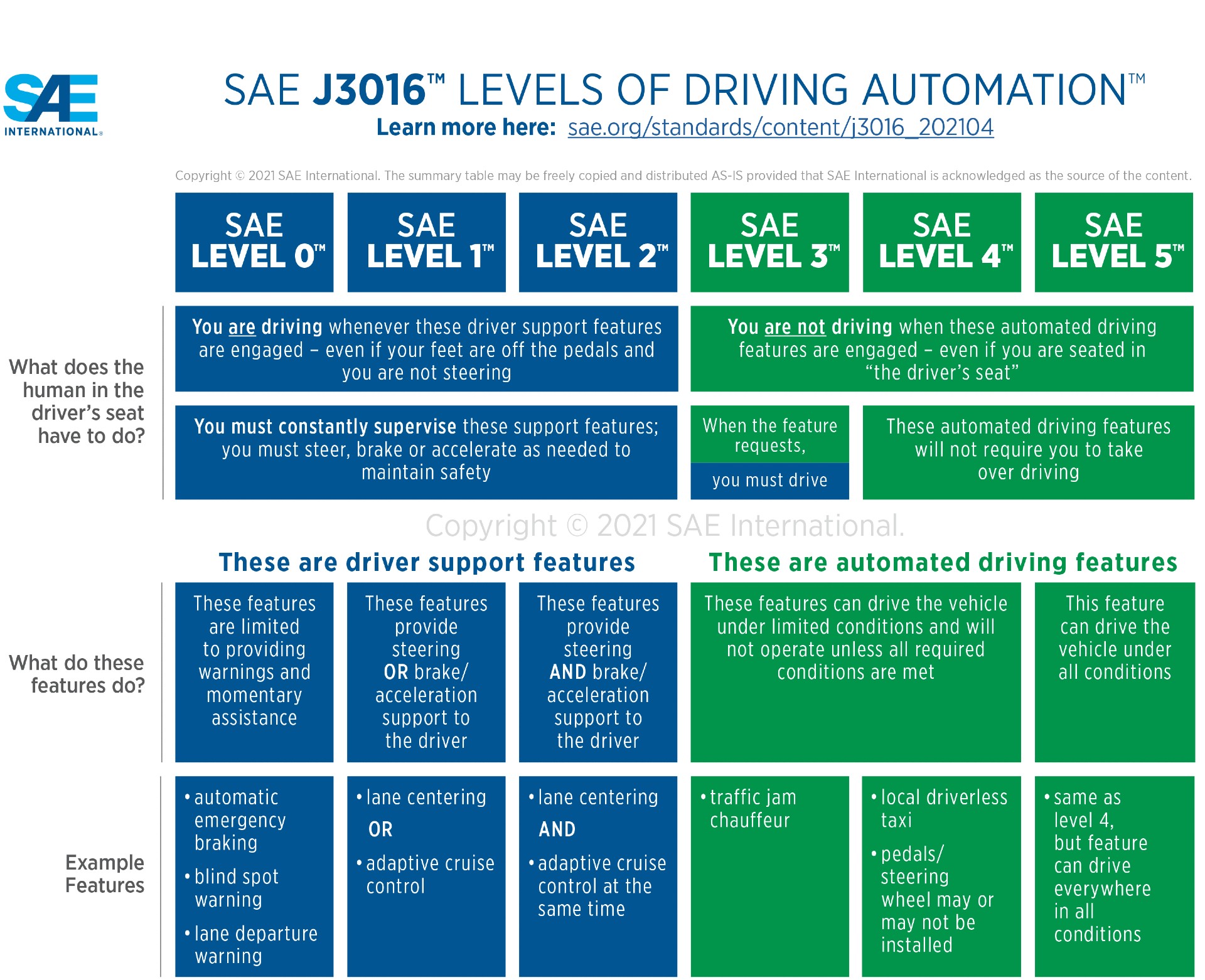
Credit: Society of Automotive Engineers
Recent ratings by Consumer Reports showed that Tesla’s biggest flaw was driver monitoring. Many systems use cabin-facing cameras to monitor eye behavior to ensure the operator is keeping their eyes on the road. Teslas use a series of audible and visual cues to alert drivers of their inattentiveness, and steering wheel sensors make sure the driver keeps their hands on the wheel.
However, various cheat devices have been marketed across the internet, and in this instance, the driver appears to have their hands on the wheel while they are dozed.
Tesla activated camera-based driver monitoring in May 2021. “The cabin camera above your rearview mirror can now detect and alert driver inattentiveness while Autopilot is engaged,” Tesla said in the notes. Tests of Tesla’s driver monitoring tests showed the system was effective in some instances, especially when looking at cell phones, with alerts coming in 15 seconds.
The potential irresponsibility of users puts major risks to those on the road and the companies that develop these driver assistance programs. While there are workarounds through the previously-mentioned cheat devices, people have to know their irresponsibility could cost them, or others, their lives.
I’d love to hear from you! If you have any comments, concerns, or questions, please email me at joey@teslarati.com. You can also reach me on Twitter @KlenderJoey, or if you have news tips, you can email us at tips@teslarati.com.

Elon Musk
SpaceX IPO could push Elon Musk’s net worth past $1 trillion: Polymarket
The estimates were shared by the official Polymarket Money account on social media platform X.

Recent projections have outlined how a potential $1.75 trillion SpaceX IPO could generate historic returns for early investors. The projections suggest the offering would not only become the largest IPO in history but could also result in unprecedented windfalls for some of the company’s key investors.
The estimates were shared by the official Polymarket Money account on social media platform X.
As noted in a Polymarket Money analysis, Elon Musk invested $100 million into SpaceX in 2002 and currently owns approximately 42% of the company. At a $1.75 trillion valuation following SpaceX’s potential $1.75 trillion IPO, that stake would be worth roughly $735 billion.
Such a figure would dramatically expand Musk’s net worth. When combined with his holdings in Tesla Inc. and other ventures, a public debut at that level could position him as the world’s first trillionaire, depending on market conditions at the time of listing.
The Bloomberg Billionaires Index currently lists Elon Musk with a net worth of $666 billion, though a notable portion of this is tied to his TSLA stock. Tesla currently holds a market cap of $1.51 trillion, and Elon Musk’s currently holds about 13% to 15% of the company’s outstanding common stock.
Founders Fund, co-founded by Peter Thiel, invested $20 million in SpaceX in 2008. Polymarket Money estimates the firm owns between 1.5% and 3% of the private space company. At a $1.75 trillion valuation, that range would translate to approximately $26.25 billion to $52.5 billion in value.
That return would represent one of the most significant venture capital outcomes in modern Silicon Valley history, with a growth of 131,150% to 262,400%.
Alphabet Inc., Google’s parent company, invested $900 million into SpaceX in 2015 and is estimated to hold between 6% and 7% of the private space firm. At the projected IPO valuation, that stake could be worth between $105 billion and $122.5 billion. That’s a growth of 11,566% to 14,455%.
Other major backers highlighted in the post include Fidelity Investments, Baillie Gifford, Valor Equity Partners, Bank of America, and Andreessen Horowitz, each potentially sitting on multibillion-dollar gains.
News
Tesla expands global FSD (Supervised) testing with Abu Dhabi trials
The program marks the emirate’s first formal testing framework for Tesla’s supervised autonomous driving technology.
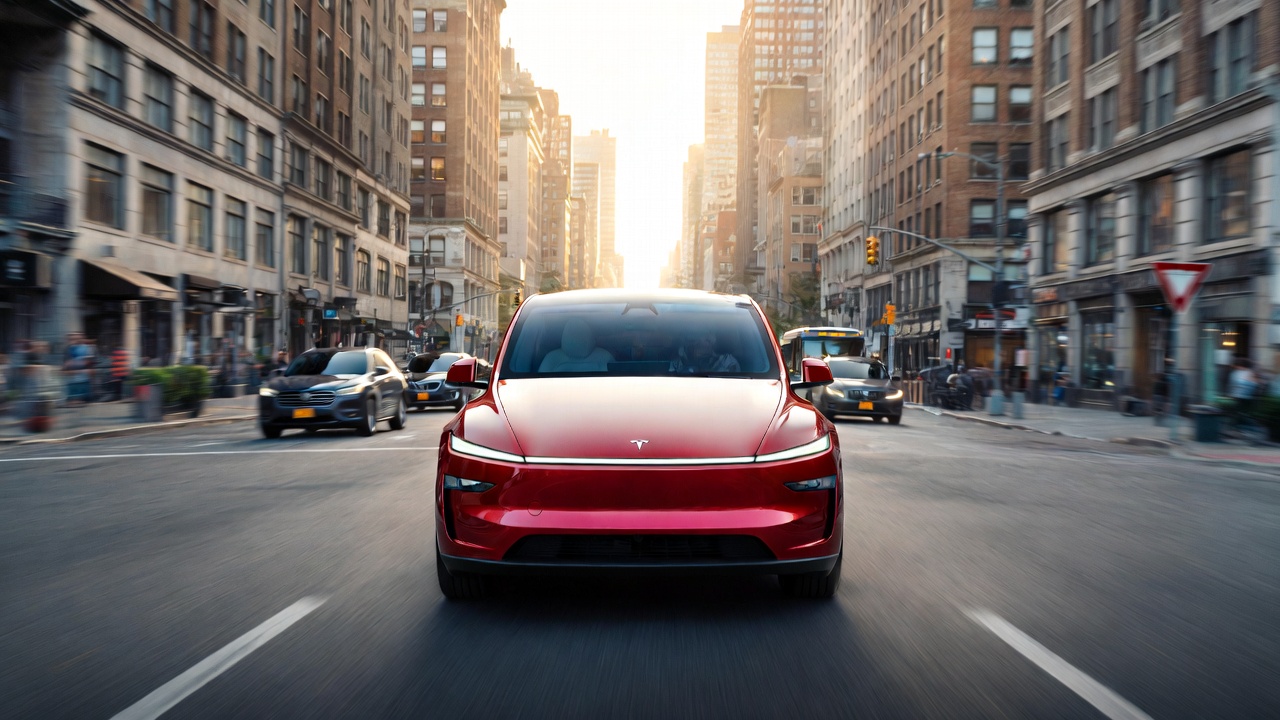
Tesla has started its first Full Self-Driving (Supervised) road trials in Abu Dhabi under the oversight of the Integrated Transport Centre, also known as Abu Dhabi Mobility.
The program marks the emirate’s first formal testing framework for Tesla’s supervised autonomous driving technology.
FSD (Supervised) road trials are being conducted with the support of the Smart and Autonomous Systems Council and in coordination with the Legislation Lab at the General Secretariat of the UAE Cabinet.
Dr. Abdulla Hamad AlGhfeli, Acting Director General of the Integrated Transport Centre (Abu Dhabi Mobility), highlighted the agency’s regulatory role in overseeing the FSD (Supervised) tests in a press release.
“The supervision of the Integrated Transport Centre (Abu Dhabi Mobility) over the commencement of Tesla’s advanced autonomous driving technology tests reflects its regulatory and legislative role. These tests represent a qualitative step to evaluate the technology’s performance in a real-world operating environment and to collect the necessary data to verify its readiness before any future expansion in usage.
“Through this organized framework, and in cooperation with strategic partners, we seek to achieve a balance between supporting innovation and encouraging the adoption of smart solutions on one hand and ensuring the safety of road users on the other, in line with the emirate’s direction to develop an advanced, safe, and sustainable transport system,” he said.
Tesla is putting a lot of effort into expanding the rollout of FSD (Supervised) to territories outside in the United States. During a recent interview with Giga Berlin plant manager Andre Thierig, Musk stated that Tesla is looking to secure approval for FSD (Supervised) in the Netherlands this coming March.
“Tesla has the most advanced real-world AI, and hopefully, it will be approved soon in Europe. We’re told by the authorities that March 20th, it’ll be approved in the Netherlands,’ what I was told. Hopefully, that date remains the same. But I think people in Europe are going to be pretty blown away by how good the Tesla car AI is in being able to drive,” Musk stated.
Elon Musk
SpaceX considering confidential IPO filing this March: report
The filing could pave the way for a June listing at a valuation that may exceed $1.75 trillion.
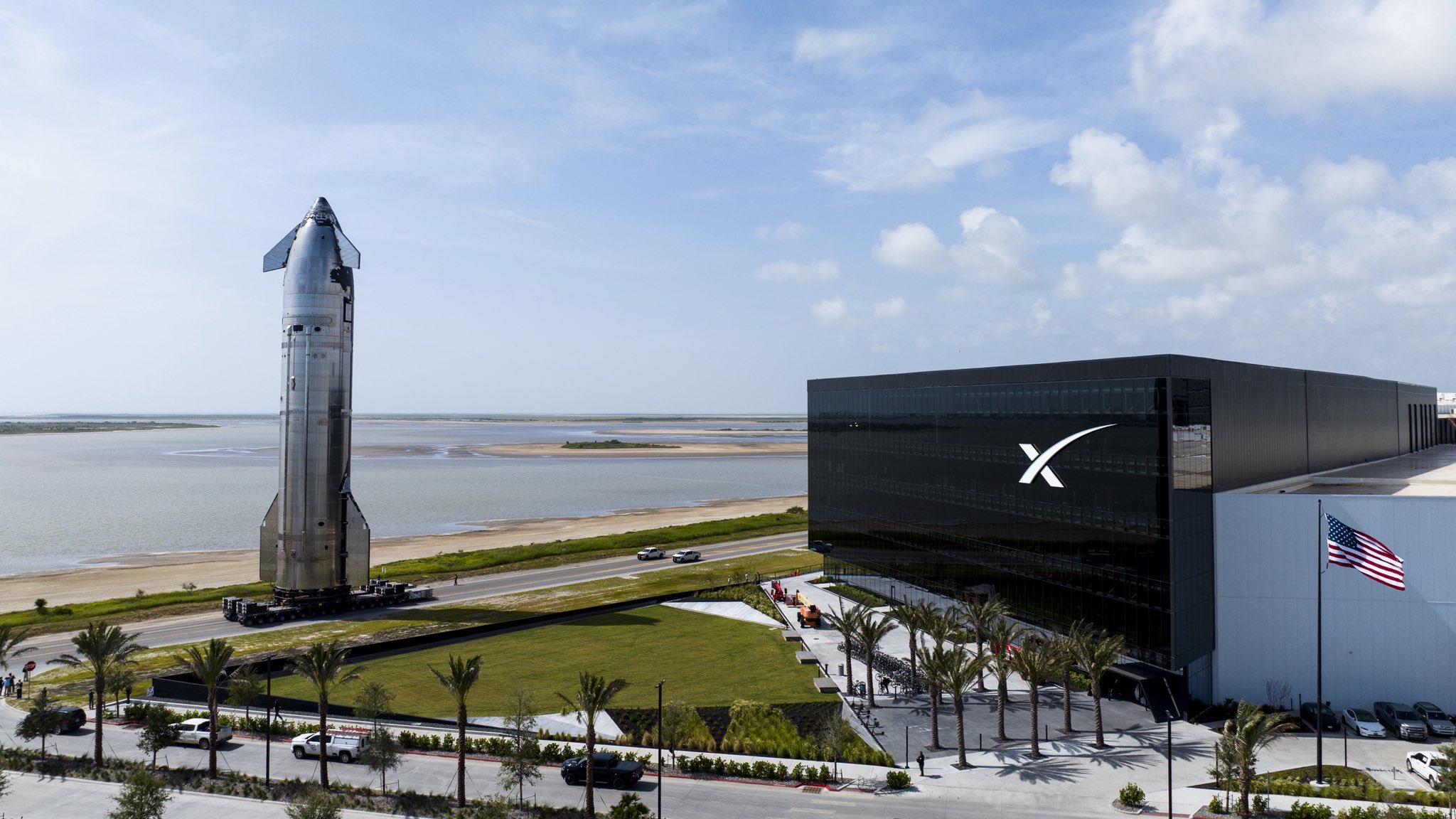
SpaceX is reportedly preparing to confidentially file for an initial public offering (IPO) as soon as March. The filing could pave the way for a June listing at a valuation that may exceed $1.75 trillion, potentially making it the largest IPO in history.
The update was initially reported by Bloomberg News, which cited information shared by people reportedly familiar with the matter.
As per the publication, a confidential filing allows a company to receive regulatory feedback before publicly releasing its financials. Bloomberg’s source, however, noted that the timing of SpaceX’s IPO is still under discussion and plans could change.
SpaceX did not immediately respond to requests for comment.
A March submission would mark the clearest step yet toward bringing Elon Musk’s private space company into public markets. People familiar with the preparations said the offering could raise as much as $50 billion. That would surpass the $29 billion debut of Saudi Aramco in 2019, currently the largest IPO on record.
Major banks including Goldman Sachs Group Inc., JPMorgan Chase & Co., Morgan Stanley, and Bank of America Corp. are reportedly positioned for senior roles in the transaction. SpaceX is also said to be considering a dual-class structure that would allow insiders, including Musk, to retain enhanced voting control.
Satellite communications provider EchoStar Corp., which holds a stake in SpaceX, reportedly saw its shares rise following news of the potential filing.
At a valuation exceeding $1.75 trillion, SpaceX would immediately have a larger market cap than all but five of the companies traded in the S&P 500 index. That figure would place it ahead of Meta Platforms Inc. and Tesla Inc. by market capitalization, trailing only a small group of mega-cap firms such as Apple Inc. and Microsoft Corp.
The scale of the proposed valuation reflects SpaceX’s dominance in orbital launch services and its Starlink satellite network, which serves millions of users globally. The company has also outlined long-term expansion plans tied to higher Starship launch cadence, orbital infrastructure, and lunar development initiatives.








